CTET & State TET Exam > CTET & State TET Notes > Child Development and Pedagogy for CTET Preparation > Cheat Sheet: Socialisation Process
Cheat Sheet: Socialisation Process | Child Development and Pedagogy for CTET Preparation - CTET & State TET PDF Download
Learning is an integrated process influenced by socialisation, the lifelong process of inheriting and passing on norms, values, and skills necessary for societal participation. Effective socialisation in a conducive environment enhances learning outcomes for both teachers and learners.
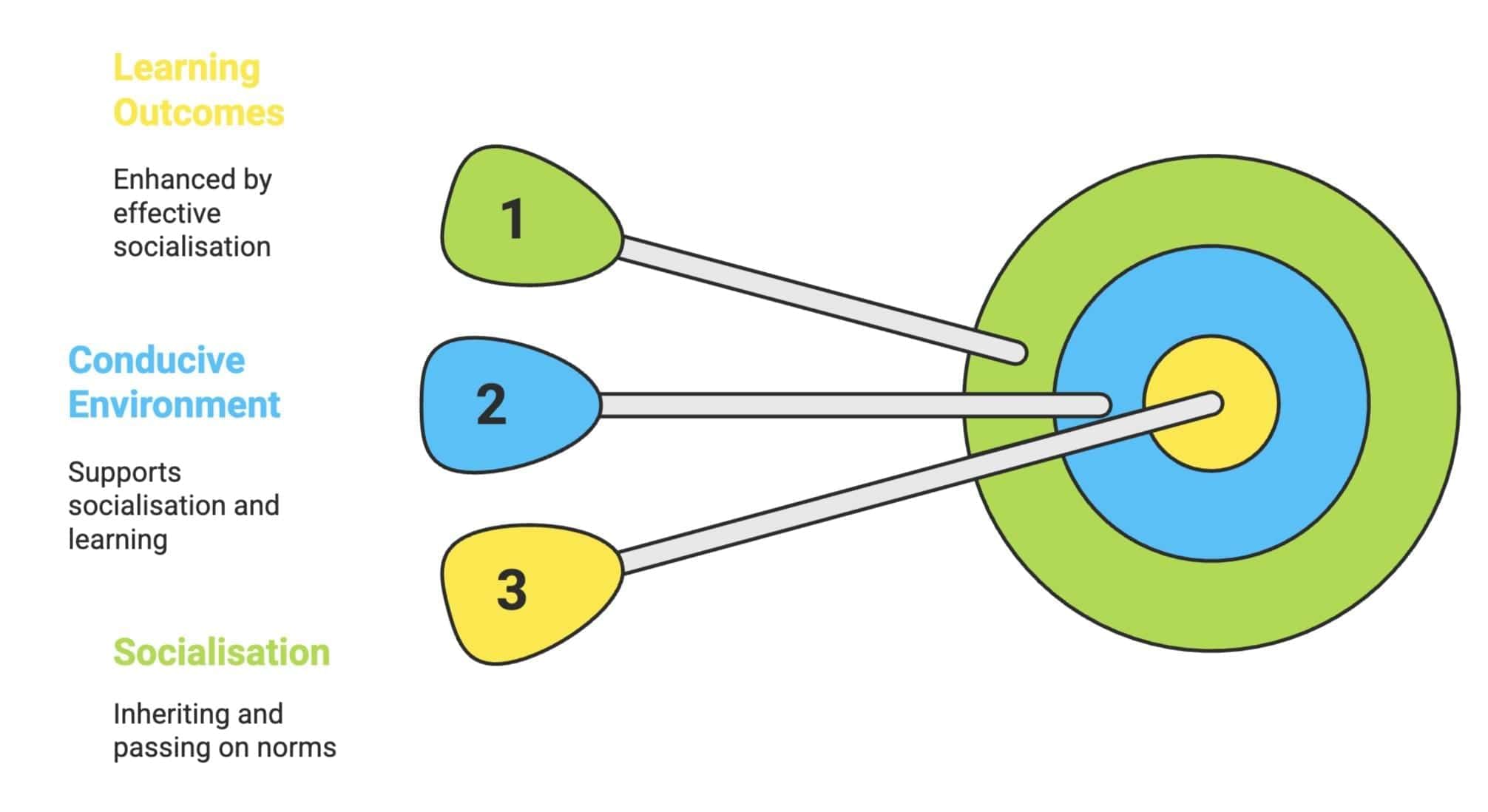
Socialisation: Meaning and Definitions
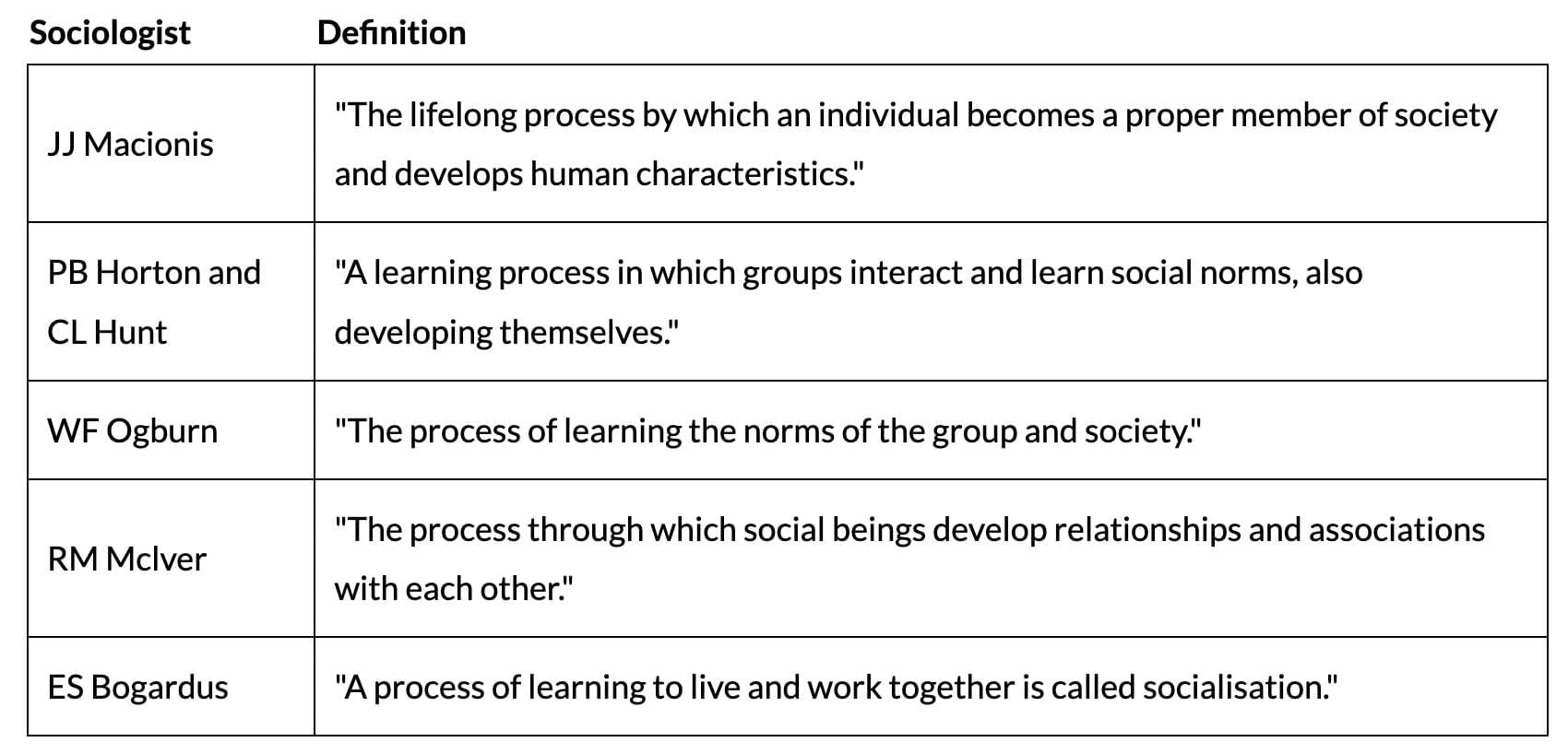
Theories of Socialisation
- Looking Glass Self Theory (Charles Horton Cooley, 1902): Self and identity develop through interpersonal interactions; individuals modify their self based on social feedback.
- Social Self Theory (George Herbert Mead): Distinguishes 'I' (active aspect) and 'me' (socialised aspect); central to symbolic interactionism.
- Ecological Systems Theory (Bronfenbrenner): Child development is shaped by layers of environmental relationships.
- Theory of Mind: Ability to attribute mental states (beliefs, desires) to oneself and others, crucial for understanding social interactions.
Erik Erikson’s Eight Stages of Socialisation
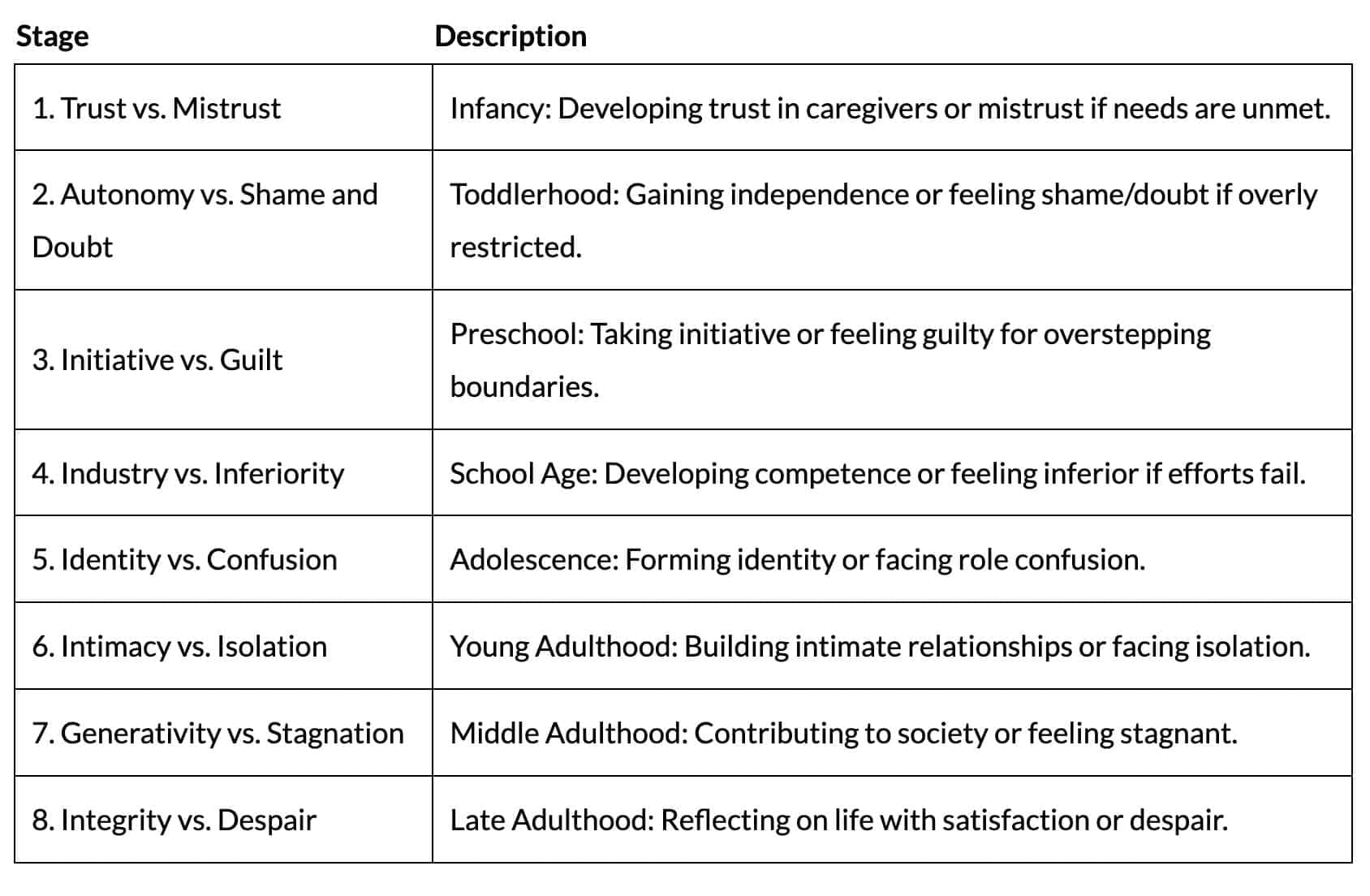
Socialisation and Education
- Overlap: Both are learning processes; boundaries have blurred over time.
- Gardening Approach: Education emphasises values traditionally left to socialisation.
- Historical Distinction: Socialisation was informal, value-focused; education was formal, knowledge-based.
- Modern Shift: Schools teach life skills (e.g., dressing, attention, hygiene) once learned informally.
Types of Socialisation

Factors Influencing Socialisation
- Social Interaction: Engaging with family, neighbourhood, schools, friends, and community.
- Imitation: Copying others’ behaviours, developing unique personality aspects.
- Suggestion: Influences through language, pictures, or media shape behaviour privately and socially.
- Sympathy: Empathising with others fosters conversations and social bonds.
- Identification: Early random actions become purposeful as children identify with need-fulfilling objects (e.g., mother, toys).
- Language: Key for cultural transmission and interaction; evolves from random syllables to mother tongue.
Agents of Socialisation
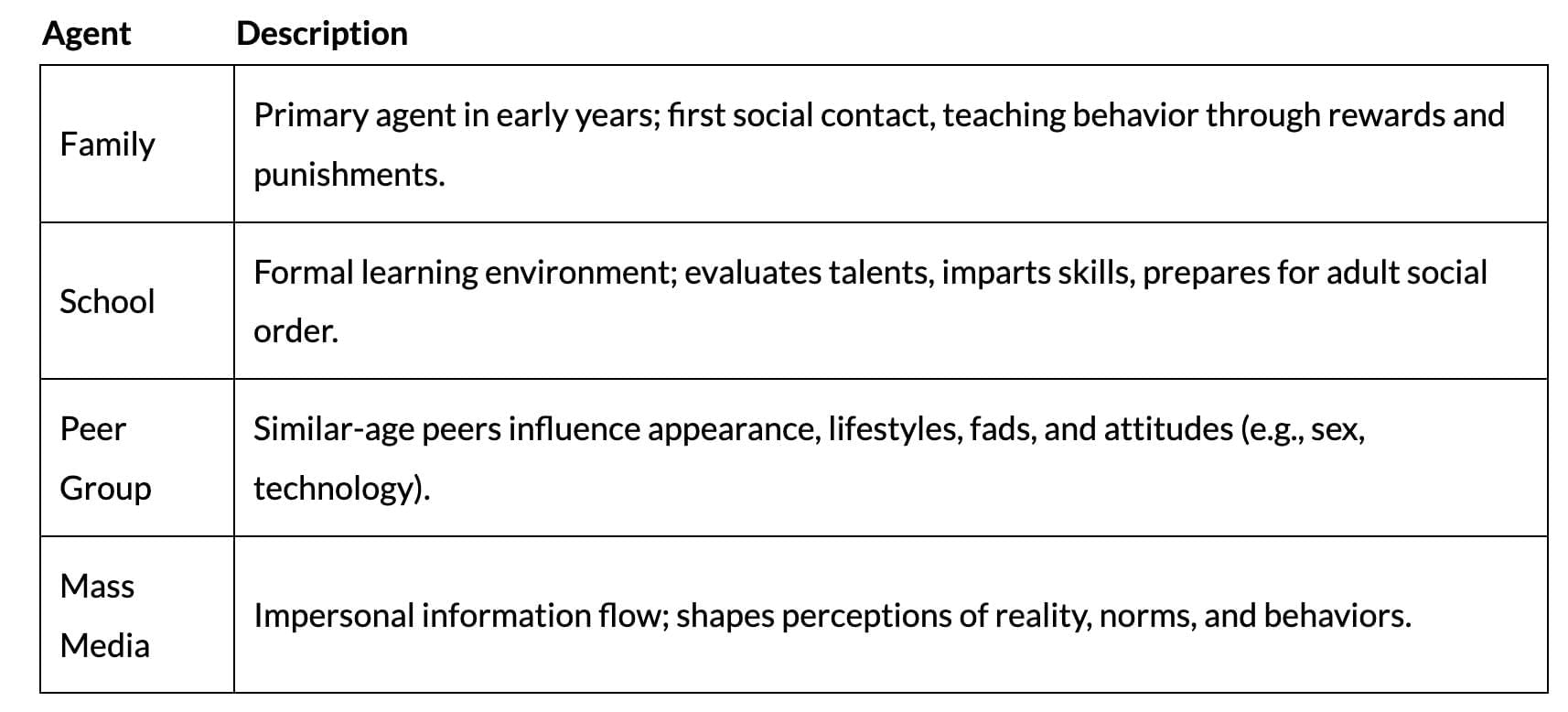
Role of Play in Socialisation
- Overview: Essential for socialisation, creativity, and education; “principal business of childhood” (Bruner, 1975).
- Historical Aspects: Ancient toys from China, Egypt, and Babylon show play’s role across civilisations.
- Modern Challenges: Play evolves with generational changes; education must adapt.
Levels of Play in Maturation
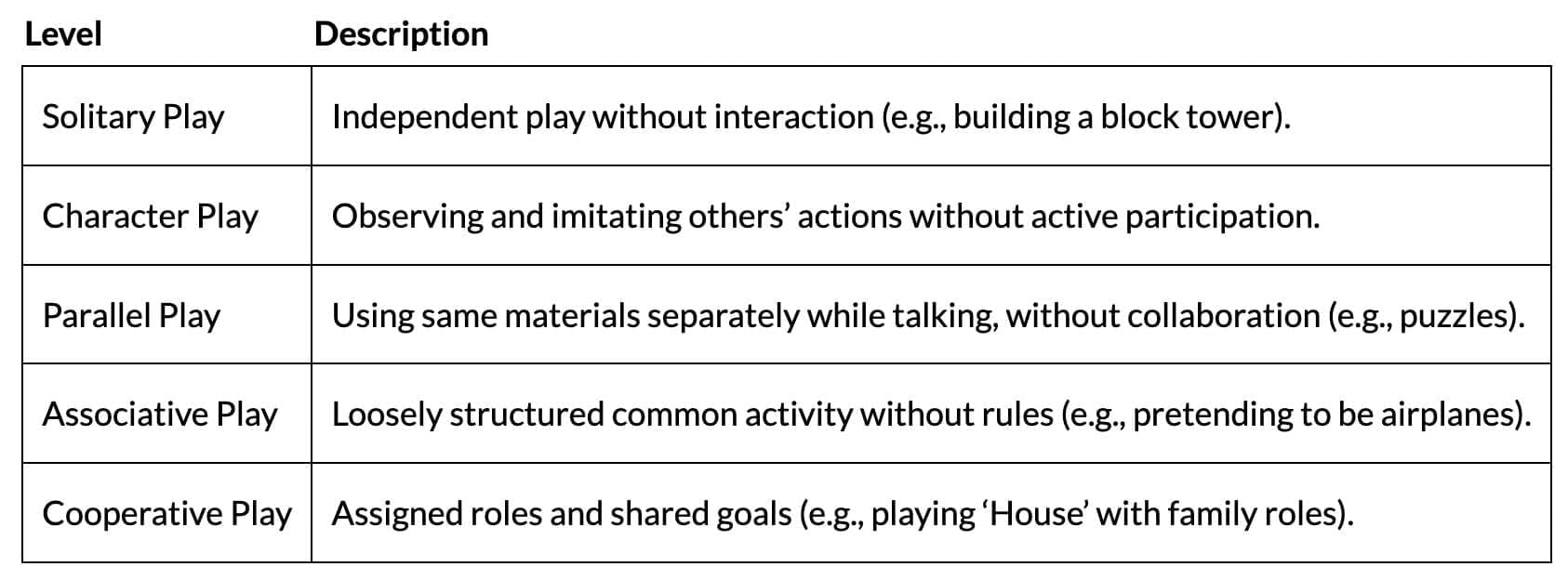
Play enhances motor, cognitive, and socio-emotional skills, fostering well-being and creative thinking.
The document Cheat Sheet: Socialisation Process | Child Development and Pedagogy for CTET Preparation - CTET & State TET is a part of the CTET & State TET Course Child Development and Pedagogy for CTET Preparation.
All you need of CTET & State TET at this link: CTET & State TET
|
70 videos|154 docs|42 tests
|
FAQs on Cheat Sheet: Socialisation Process - Child Development and Pedagogy for CTET Preparation - CTET & State TET
| 1. What is the meaning of socialization and how is it defined in various contexts? |  |
Ans. Socialization is the process through which individuals learn and internalize the values, beliefs, norms, and behaviors of their culture and society. It is a lifelong process that occurs in various contexts, including family, schools, and peer groups. Definitions of socialization often highlight its role in shaping identity, facilitating communication, and fostering social cohesion.
| 2. What are the main theories of socialization, and how do they differ? |  |
Ans. The main theories of socialization include the psychoanalytic theory, behaviorism, cognitive development theory, and social learning theory. Psychoanalytic theory, proposed by Freud, emphasizes the role of unconscious processes and early childhood experiences. Behaviorism focuses on observable behaviors and the influence of the environment. Cognitive development theory, introduced by Piaget, highlights how thinking evolves with age, while social learning theory, developed by Bandura, underscores the importance of modeling and imitation in learning behaviors.
| 3. How does Erik Erikson's Eight Stages of Socialization contribute to our understanding of human development? |  |
Ans. Erik Erikson's Eight Stages of Socialization outline the psychological challenges individuals face at different life stages, from infancy to late adulthood. Each stage involves a specific conflict that must be resolved for healthy psychological development. For example, trust versus mistrust in infancy sets the foundation for future relationships. This framework helps us understand the impact of social experiences on personality and identity formation throughout the lifespan.
| 4. What role does education play in the process of socialization? |  |
Ans. Education plays a crucial role in socialization by teaching individuals the knowledge, skills, and cultural norms necessary for functioning in society. Schools serve as primary agents of socialization, where students learn not only academic content but also social skills, values such as respect and responsibility, and cultural heritage. Education helps shape identity and prepares individuals for future roles in the community and workforce.
| 5. What are the various agents of socialization, and how do they influence individual behavior? |  |
Ans. The primary agents of socialization include family, peers, schools, media, and religious institutions. Each agent influences individual behavior in different ways. Family is the first socializing agent, instilling core values and beliefs. Peers provide a sense of belonging and influence social norms. Schools educate and promote social skills, while media shape perceptions and attitudes. Religious institutions often reinforce moral values and community identity, contributing to overall socialization.
Related Searches





















